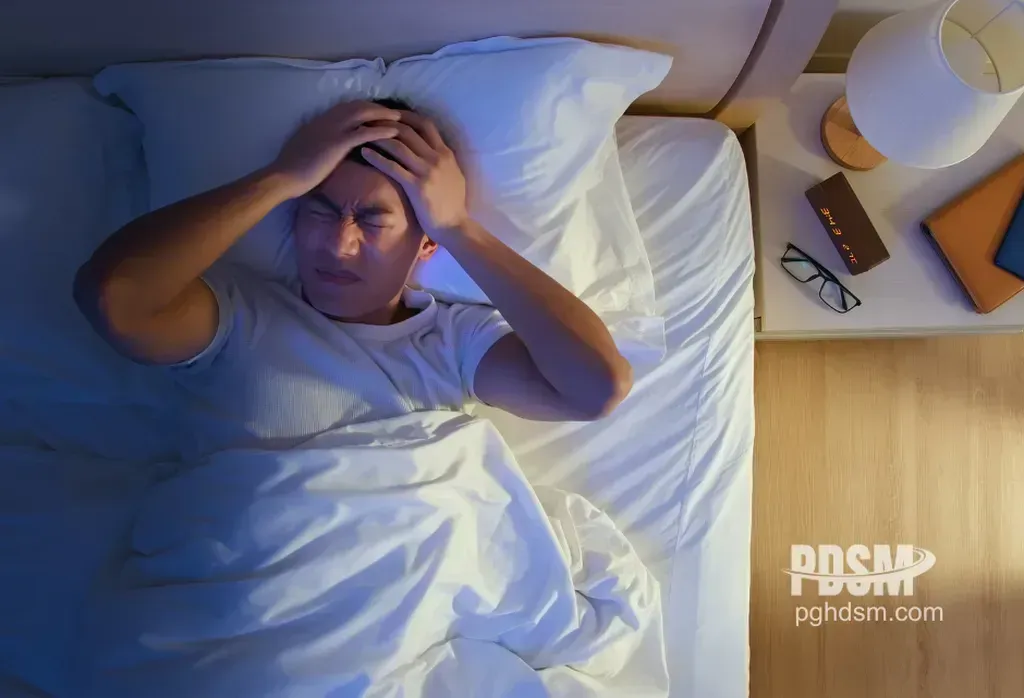Morning Headaches: Are They a Sign of Sleep Apnea?

Yes, that nagging, morning headache is telling you something! The month of June is Migraine and Headache Awareness Month (MHAM) and is a timely opportunity for us to share information on signs and symptoms of untreated sleep apnea, and to offer a solution!
Obstructive Sleep Apnea (OSA) typically coincides with loud snoring or gasping for air, but you may not be aware that there are many other signs and symptoms of OSA that may not always be as obvious.
For example, you might also experience chronic dry mouth when you wake up because you’re being forced to sleep with your mouth open. You might also wake up several times throughout the week with persistent, increasingly worse headaches or migraines.
Which Type of Headache Do You Have?
There are numerous types of headaches and they can be caused by a myriad of reasons. The most common culprits are migraine headaches, cluster headaches, tension headaches, hypnic headaches, and paroxysmal hemicrania.
- Migraine Headaches cause an intense throbbing sensation localized to one area and can cause sensitivity to light and sound. These headaches are often caused by dehydration, poor sleep, hormonal changes, stress, and certain foods and drinks.
- Cluster Headaches are more severe and occur in "clusters" or groups over extended periods. They usually affect one side of the head and can cause pain behind the eye, as well as a runny nose or watery eyes.
- Tension Headaches are the most common type of morning headache that feels like a tight band is gripping your whole head. These can be caused by stress, anxiety, or sleeping with a neck pillow that's too high.
- Hypnic Headaches are often referred to as "alarm clock headaches" because they usually occur around the same time of the night, during the REM stage of sleep. The pain is often enough to wake someone out of a sound sleep.
- Paroxysmal Hemicrania is a headache with intense throbbing and claw-like pain to the side of the face, in or around the eye, or the back of the neck.
Now that you know the different types of morning headaches, let’s review one of what may be causing them!
Sleep Apnea and Oxygen Deprivation
Sleep apnea is a disorder that not only affects the quality of your sleep but also your ability to breathe. This means sleep apnea attacks your body on two fronts: by depriving you of the oxygen your cells and tissues need, and by depriving your mind and body of the rest they need to properly recuperate.
Sleep apnea-induced fatigue is one of the most common results of the disorder and, combined with oxygen deprivation, can contribute to debilitating morning headaches and migraines.
It's More Than Just a Headache!
Sleep apnea often comes with a host of other negative impacts on your health and well-being besides fatigue. Headaches and exhaustion may be immediate side effects of oxygen deprivation, but longer-term effects can include increased risks of heart disease, chronic cardiovascular problems, stroke, mental health disorders, and more. To avoid these risks, you should seek a sleep apnea assessment and appropriate treatment, if necessary, as soon as you notice related symptoms.
Find Out if Oral Appliance Therapy Can Help
Your treatment path depends on your overall health and the severity of your sleep apnea. In cases where an underlying medical condition might be to blame, treating that condition is often the first step.
Pennsylvania Dental Sleep Medicine offers oral appliance therapy as a first-line treatment and a great alternative to CPAP. These devices are worn in your mouth while you sleep and help keep your airway open. They are noninvasive and nonintrusive, offering a custom fit, and are comfortable to wear.
All of our sleep dentists have achieved Diplomate status with the American Board of Dental Sleep Medicine and have guided more than 19,000 patients through sleep apnea treatment.

If you think you may be suffering from sleep apnea, here are the steps to take to move forward with treatment now!
- Contact a physician and ask them to schedule a face-to-face evaluation to assess you for obstructive sleep apnea.
- Ask the physician to schedule a Sleep Study. (Most often can just be done in your own home)
- Request that your physician review the sleep test report and provide you with a referral, and letter of medical necessity, for oral appliance therapy.
- Ask your doctor to fax your referral, notes, and a sleep study to (717) 995-3591.
Stop suffering from morning headaches and fatigue and take these quick steps toward quality sleep, and quality life!
If you have any questions, call us any time at (717) 995-3590 and select the option for ‘new patient’.


